GED GED Reading GED Reasoning Through Language Arts Online Training
GED GED Reading Online Training
The questions for GED Reading were last updated at Mar 01,2026.
- Exam Code: GED Reading
- Exam Name: GED Reasoning Through Language Arts
- Certification Provider: GED
- Latest update: Mar 01,2026
— ExhibitC
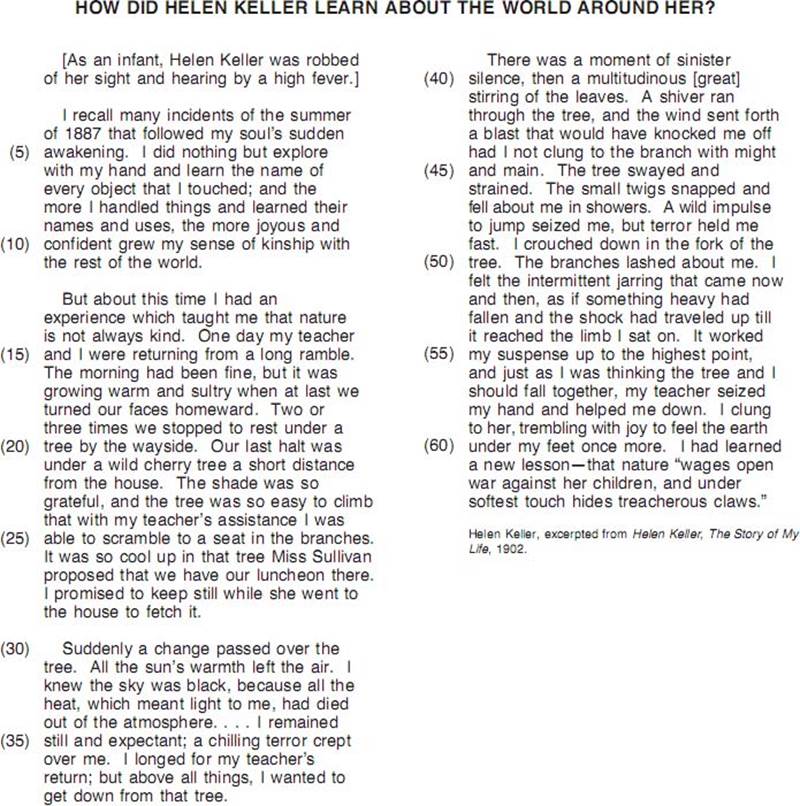
— Exhibit -
“Nature ‘wages open war against her children, and under softest touch hides treacherous claws’ ’’ (lines 61C63).
Why did Helen Keller use this quotation in her account?
- A . to describe how nature can change from tranquil to dangerous
- B . to show how Helen’s love of nature changed to fear
- C . to explain that wild animals are really dangerous
- D . to show that Helen prefers to avoid conflict
- E . to warn that children shouldn’t explore nature alone
— ExhibitC
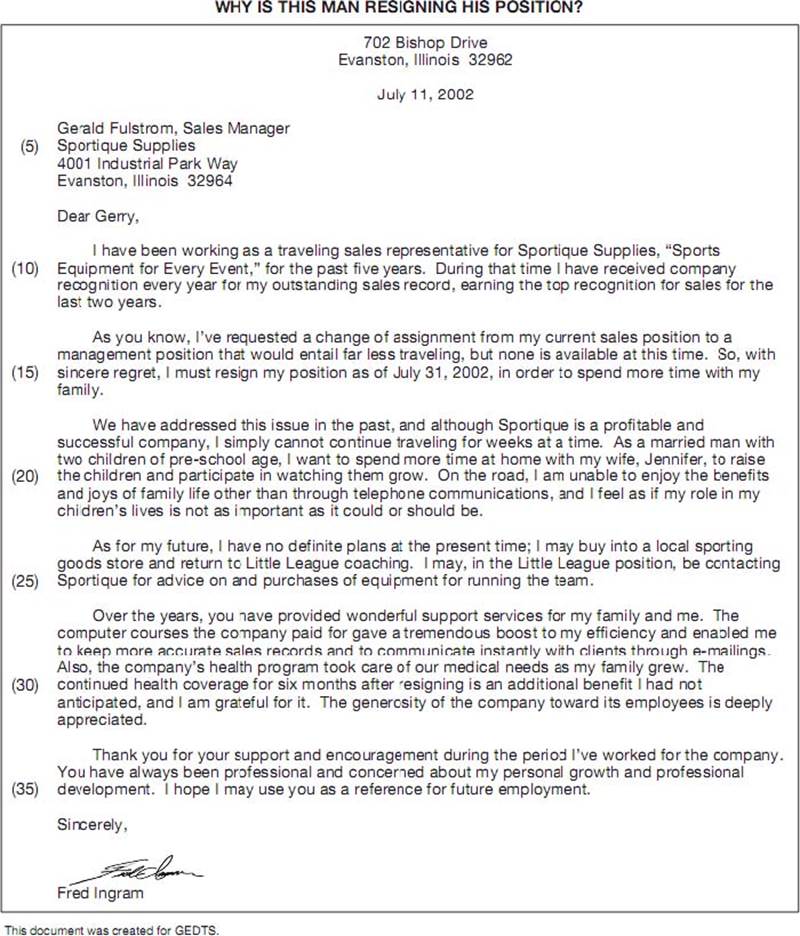
— Exhibit -
Fred Ingram states in his letter that his role in his children’s lives “is not as important as it could or should be” (line 22).
Based on this statement, what might the reader conclude about Fred Ingram’s beliefs about rearing children?
- A . fathers should be directly involved in parenting children
- B . mothers should be the more influential parent
- C . health care providers must be supervised by parents
- D . parents must secure the best possible education for their children
- E . grandparents can easily assume the roles of mother or father
— ExhibitC Which of the following words best describes Maggie’s attitude toward Vera by the end of this excerpt?
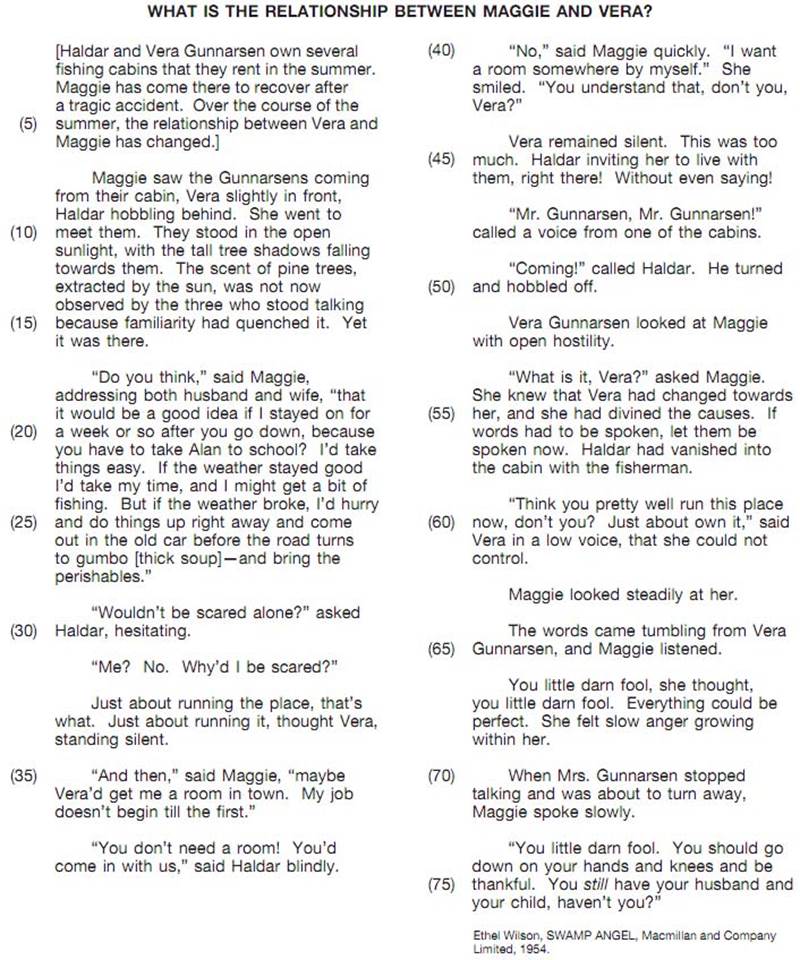
- A . angry
- B . caring
- C . remote
- D . indifferent
- E . sympathetic
— ExhibitC
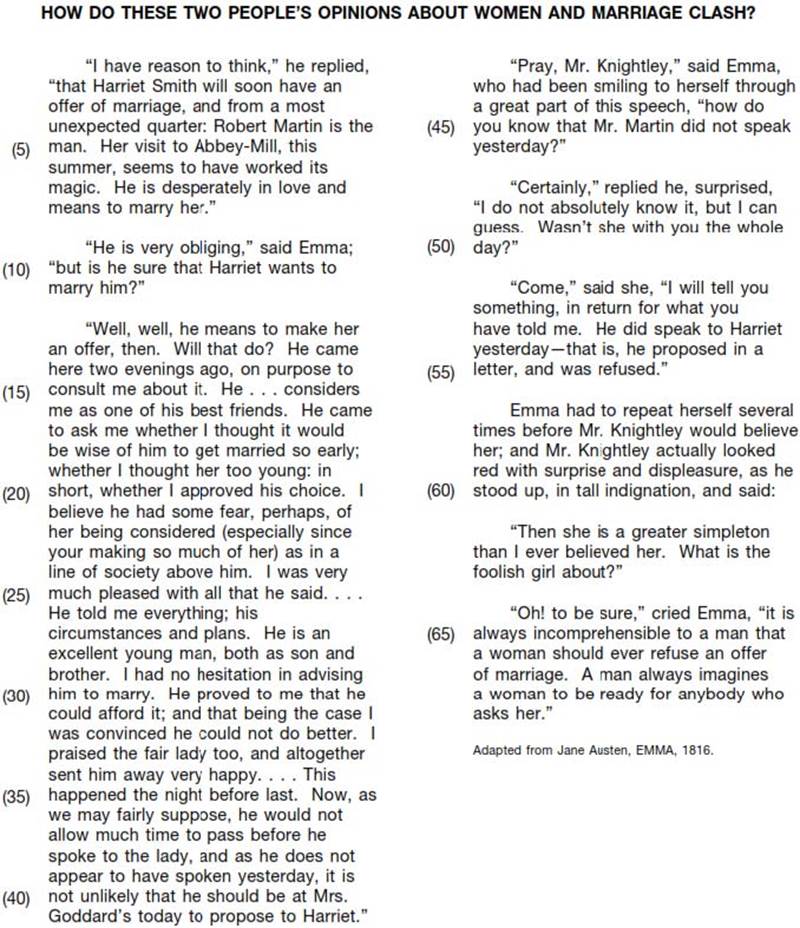
— Exhibit -
Which one of the following phrases best describes Emma’s character as revealed in this excerpt?
- A . eager to please
- B . strong-minded
- C . playful with children
- D . indifferent to others
- E . careful about hurting other people’s feelings
— ExhibitC
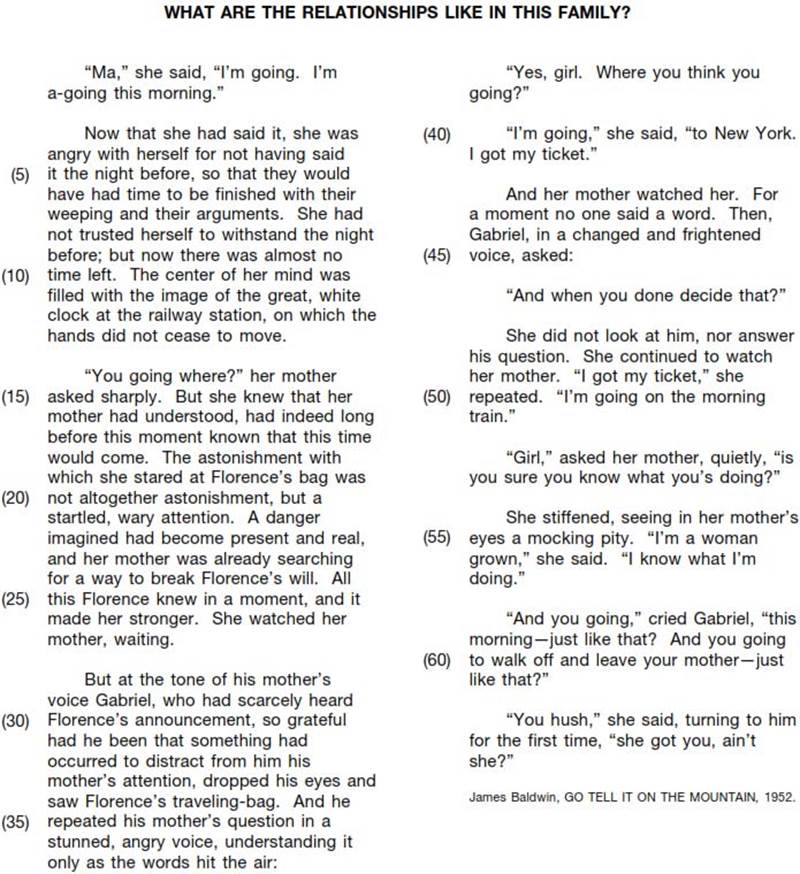
— Exhibit -After Florence told Ma she was leaving, "The center of her mind was filled with the image
of the great, white clock at the railway station, on which the hands did not cease to move" (lines 10C13).
What was Florence thinking about after she told Ma her plans?
- A . avoiding an argument with Gabriel
- B . facing the danger that lay beyond the railway station
- C . getting away on time to follow through with her plans
- D . forgetting to pack something important
- E . saving enough money for the trip
— ExhibitC
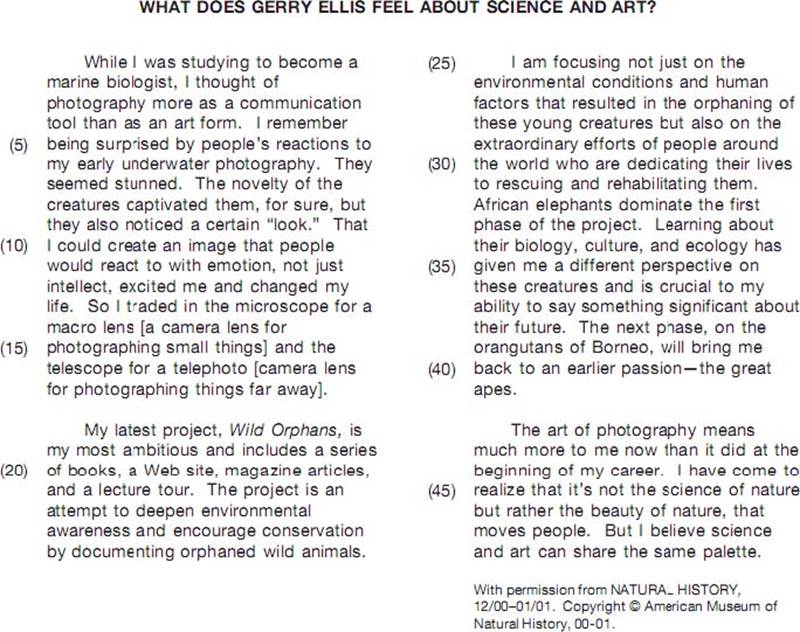
— Exhibit -Why did the author trade in “the microscope for a macro lens and the telescope for a telephoto” (lines 13C16)?
- A . needed to use newer equipment in his job
- B . was going to become a marine biologist
- C . would need different equipment for his new job
- D . suspected that animals would be frightened by microscopes and telescopes
- E . had never used a microscope or telescope before
— ExhibitC
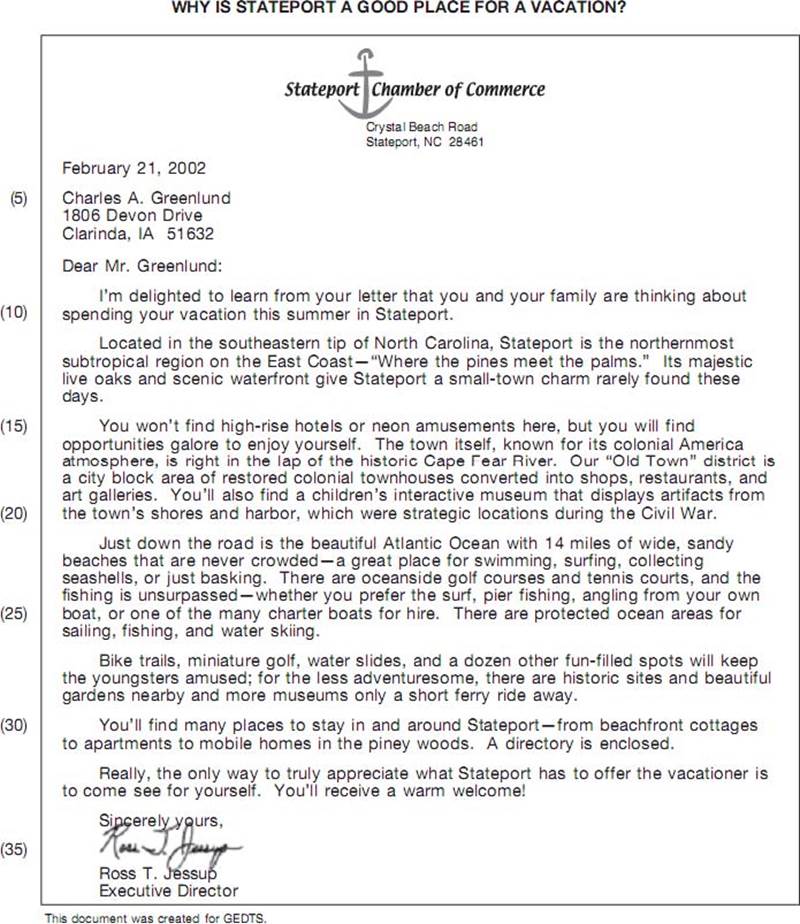
Why does Mr. Jessup include the phrase “Where the pines meet the palms” (line 12) and put it in quotation marks?
- A . describe their place in history
- B . discourage developers
- C . identify their sports teams’ mascots
- D . highlight the town’s beauty
- E . provide directions for tourists
— ExhibitC
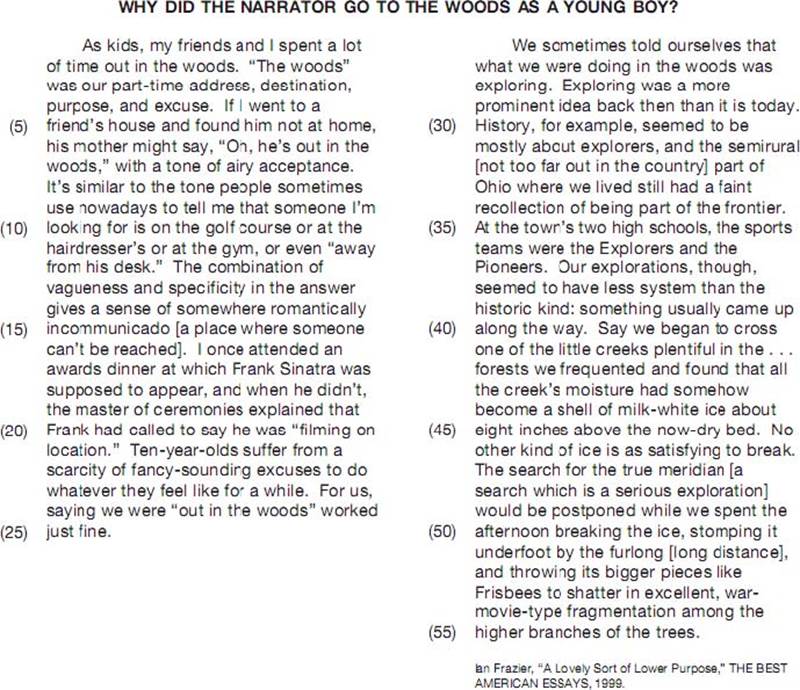
— Exhibit -
What did the narrator and his friends like to pretend they were doing when they were out in
the woods?
- A . filming
- B . working
- C . studying
- D . exploring
- E . exercising
— ExhibitC
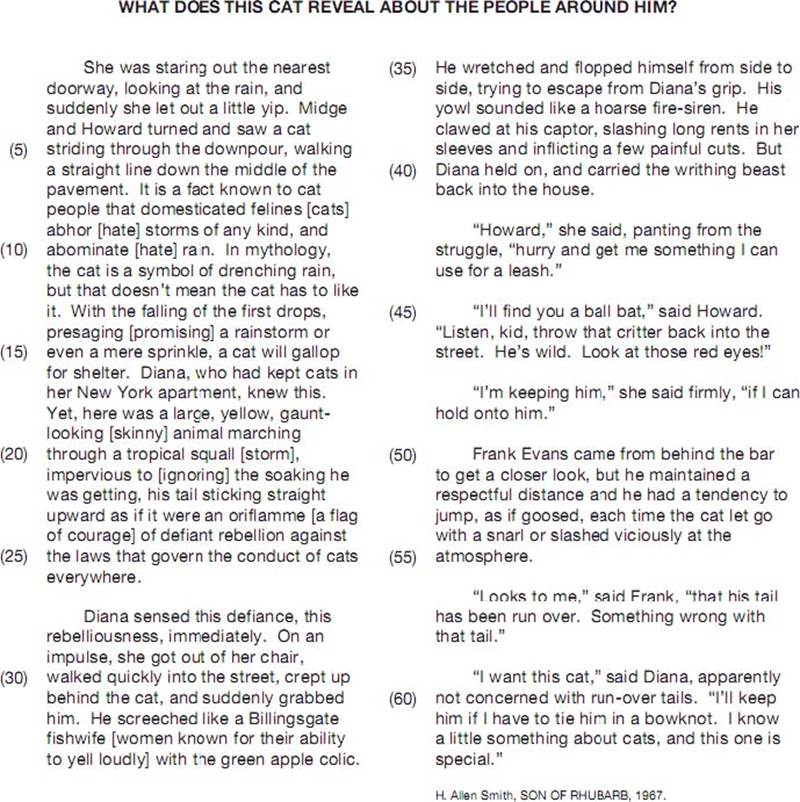
— Exhibit -
What is the effect of the word “gallop” (line 15) to describe the way most cats react to storms?
- A . the rapid, negative reaction of most cats to rainstorms
- B . the connection between horses and cats
- C . a cat’s natural joy in walking in the rain
- D . the cat’s deep attachment to its home
- E . the gracefulness and poise of cats
— ExhibitC
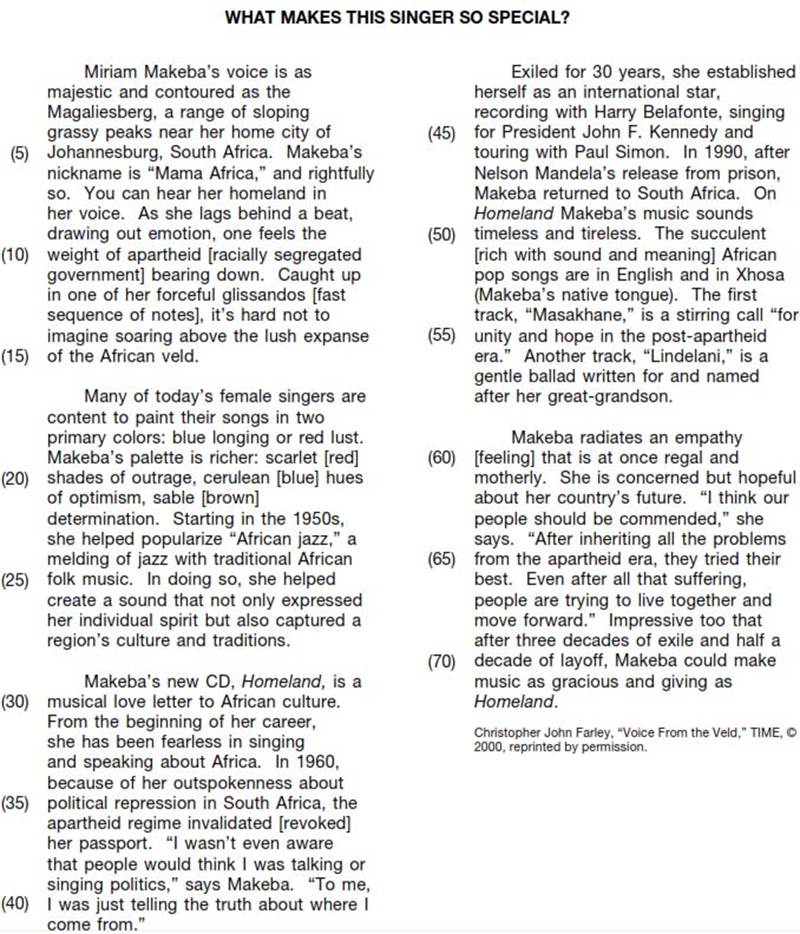
— Exhibit -
In lines 23C25, the author states that Makeba "helped popularize ‘African jazz,’ a melding of jazz with traditional African folk music."
What did Makeba do with the two different kinds of music?
- A . fixed them
- B . blended them
- C . explained each
- D . separated them
- E . painted each separately
Latest GED Reading Dumps Valid Version with 240 Q&As
Latest And Valid Q&A | Instant Download | Once Fail, Full Refund

